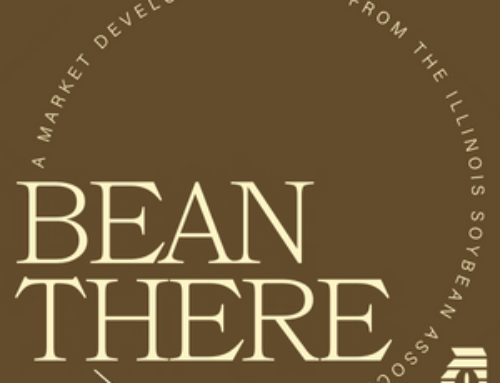From an Illinois Farm to Egypt – 10 questions and answers with Illinois Soybean Association’s District 5 Director, Mark Read, on the Illinois Soybean Association’s (ISA) recent trade mission to Egypt.
Q: What surprised you the most about Egypt?
Mark Read (MR): I was most surprised by how poultry (Chickens) were sold. About 70% are sold in a live market. It was encouraging to see some leading companies we visited, like Wadi Group, entering the frozen and prepared food markets to hopefully innovate how poultry is sold long term.
Q: What were the differences in how people live there compared to here?
MR: One main difference is the cultural contrast we saw in Egypt, so the weekend starts early for them, and Sunday is a workday. Driving is also an experience, no need for stop lights as they keep moving in and out of traffic. You definitely need a good horn to drive there.
Q: How was the language barrier and your ability to communicate?
MR: Most business and University folks spoke English, French and Arabic. Egypt is in northern Africa and was a British colony some 70 years ago. We also were with USSEC folks who could speak and interpret for us. Mr. Moosa Wakileh, the USSEC representative for that area, took great care of us and arranged a great visit. He does a great job representing the American farmer for us.
Q: What were some of your favorite tourist-type experiences?
MR: Visiting the Pyramids was my favorite experience. Unbelievable that they could build them in that period.
Q: Tell us about Egypt’s agricultural landscape from your point of view.
MR: Most of the agriculture is reliant on water from the Nile River. So that is a limiting factor for them. It was impressive to see how the industry has adapted to problem-solve this issue.
Q: Tell us about how Egypt utilizes Illinois soybeans.
MR: Egypt is our 3rd largest customer for whole soybeans as they utilize both the oil and the meal. Poultry is the most significant meal consumer as their diet is about a third soymeal. Aquaculture is still growing in the area, with tilapia being the main fish raised, and their diet is on average, close to 40% soymeal. Through the Illinois Soybean Association’s sponsored Soy Excellence Center, a program through USSEC, or aquaculture there, we are introducing In-Pond raceway systems which will increase their efficiency and use less water, so the aquaculture folks we met with are excited about that.
Q: Tell us about some of the places you visited that utilize Illinois soybeans.
MR: We visited one of the largest poultry producers and quickly discovered that biosecurity is the number one concern. We did not get close to a poultry facility. They are super concerned with Avian Influenza, as they should be.
We visited WorldFish which hosts the Soy Excellence Center for Aquaculture and they do a great job educating and helping the aquaculture industry grow and succeed. We were able to tour the facility after we sat in on an educational session and were able to introduce our Illinois farmer contingent. They were very appreciative of our support and helped them to further their education.
We were able to visit Cairo University and congratulate their graduates of the Soy Excellence Center’s Poultry Science Program, supporting professionals extending their education in the soy-fed poultry space.
Q: Tell us how ISA and USEEC are helping Egyptian farmers succeed.
MR: The Soy Excellence Centers are helping to further their farmer’s and farm employees’ education. These programs are focused on empowering and educating entry and mid-level staff to continue to innovate industries reliant on US and Illinois soybeans.
Q: What was the most rewarding part of your trade mission?
MR: Not only am I fortunate to serve on the Illinois Soybean Association Board, but I also serve as the Vice Chair of USSEC Soy Excellence Center Steering Committee. I was able to visit the ISA funded Egypt initiatives in June of 2022, so seeing the progress made was exciting. I also saw the pride that the students who took the Soy excellent courses in both Poultry and Aquaculture. We were able to pass out their graduation certificates which was a rather humbling experience.
Q: Tell us about your culinary experiences.
MR: We were careful of what we ate, but most of us tried pigeon or pigeon stew which was ok but nothing to write home about.
Q: Would you go back?
MR: Yes!
High resolution photos of ISA’s trade mission to Egypt are available upon request. To interview Mark, please contact ISA’s Media Relations Manager, DeAnna Thomas – deanna.thomas@ilsoy.org
